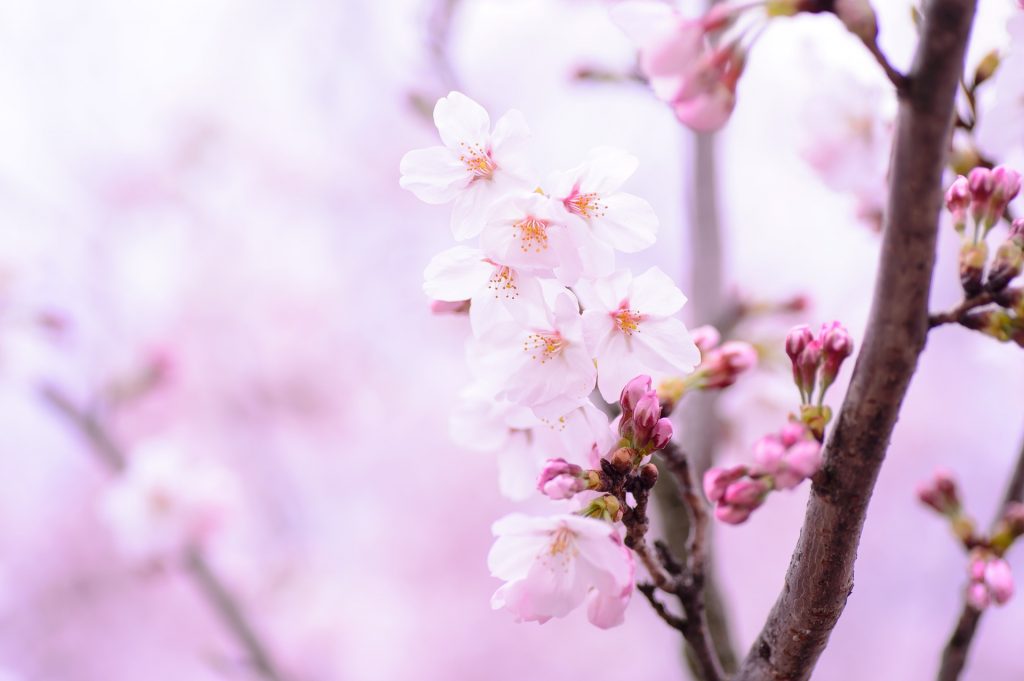Learning Japanese Kuchiguse, habitual phrases~ Posted by keiko on Apr 9, 2018 in Culture, Grammar
Success is no accident. It is hard work, perseverance, learning, studying, sacrifice and most of all, love of what you are doing or learning to do. -Pele-
Hi everyone. Hope you are all enjoying the beginning of the week. Believe it or not, Monday is one of my favorite days of the week, feeling excited about upcoming week, anxious to just think about what kind of excitement I will have for the week. 🙂 What is your favorite day of the week?
Today’s content is all about “Kuchiguse(口癖,くちぐせ)”, which is a habitual phrases you might be saying over and over, day after day. Sometimes we don’t realize ourselves saying the same thing repeatedly. I picked this topic because I realized I often say a certain phrases once, twice, three times, over and over throughout the day! Some are good, others are not so good, and there are a few that are not good to say so often, I admit it.
So, I observed around the house, and here are some of my family’s habitual phrases, “Kuchiguse(口癖,くちぐせ)”. Can you think of yours??
おつかれさま〜(お疲れ様〜) otsukaresama~
==>good job, well done, thanks for your hard work.
When to use this==> Kids tell their dad this when he comes home. or when I get off work. I tell kids “お疲れ様〜” when they come home from school, soccer practices, or soccer games.
さて,がんばろ!(さて,頑張ろ!)sate ganbarō!
==>Ok, let’s do it.
When to use this==>I often say this to myself when I know I need to take care of certain things, and that I cannot get away with not getting it done, like writing this post on this blog. 🙂
まじで?(マジで?)majide?
==>serious? for real? really?
When to use this==>Obviously, when you can’t believe what happened, or what you just heard.
もう,いい加減にしてよ!(もう,いいかげんにしてよ!) mō iikagenni shiteyo!
==>That’s enough. Enough! No more!
When to use this==>I tell this to my kids a lot, so frequently throughout the day when they keep picking on each other, when they keep playing games all night, when they can’t get off their phones, etc.. list keeps going.
有難うね!(ありがとうね!)arigatōne!
==>Thank you!
気を付けなよ!(きをつけなよ!)kiotsukenayo!
==>Be careful!
なるほど naruhodo
==>I see.
When to use this==>I use this often at work when someone explains to me something I didn’t know. I personally like this phrase as it makes me sound like I understand it. 🙂
嬉しいね〜(うれしいね〜)Ureshīnē
==>That makes me so happy.
有難いね!(ありがたいね!)arigatainē
==>thankful
仕方ないね。(しかたないね)shikata naine
==>can’t help it. nothing we can do about it.
もういいよ。mō iiyo
==>Let’s forget about it.
また?mata?
==>Again?
頑張ろうね。(がんばろうね)ganbarōne.
==>Let’s do our best!
This is my last word to my boys whey they leave for school every morning as they look back at me with sleepy faces.

Build vocabulary, practice pronunciation, and more with Transparent Language Online. Available anytime, anywhere, on any device.





Comments:
Kirsten:
Keikosan no nihongo no ressun, doomo arigatoo gozaimasu. Istumo totemo omoshirokute benri da to omoimasu. Takusan naraimashita, arigatoone.
Oosutorariajin no Kaasuten yori
keiko:
@Kirsten Hi Kirsten,
Thank you for your feedback. Kore karamo nihongo no benkyō ganbatte kudasai ne! (これからも にほんごの べんきょう がんばって くださいね。これらも 日本語の 勉強 頑張って くださいね!)
Keikoより
Dr.rama:
Very nice, I liked it
good information, waiting for next post. Thanks a lot
keiko:
@Dr.rama Hi Dr. rama,
Thank you for your kind words. Appreciate for taking the time to leave me your feedback. 🙂
Keiko